Top Lists
Real-life Inspirations Behind Disney Sites & Architectures
You might already know that many Disney films are based on fairytales. Snow White and the Seven Dwarfs comes from the Brothers Grimm classic and Sleeping Beauty by Charles Perrault was the basis for the film of the same name. But a princess is nothing without her castle, so have you ever wondered about the inspiration behind architectural designs in Disney films?
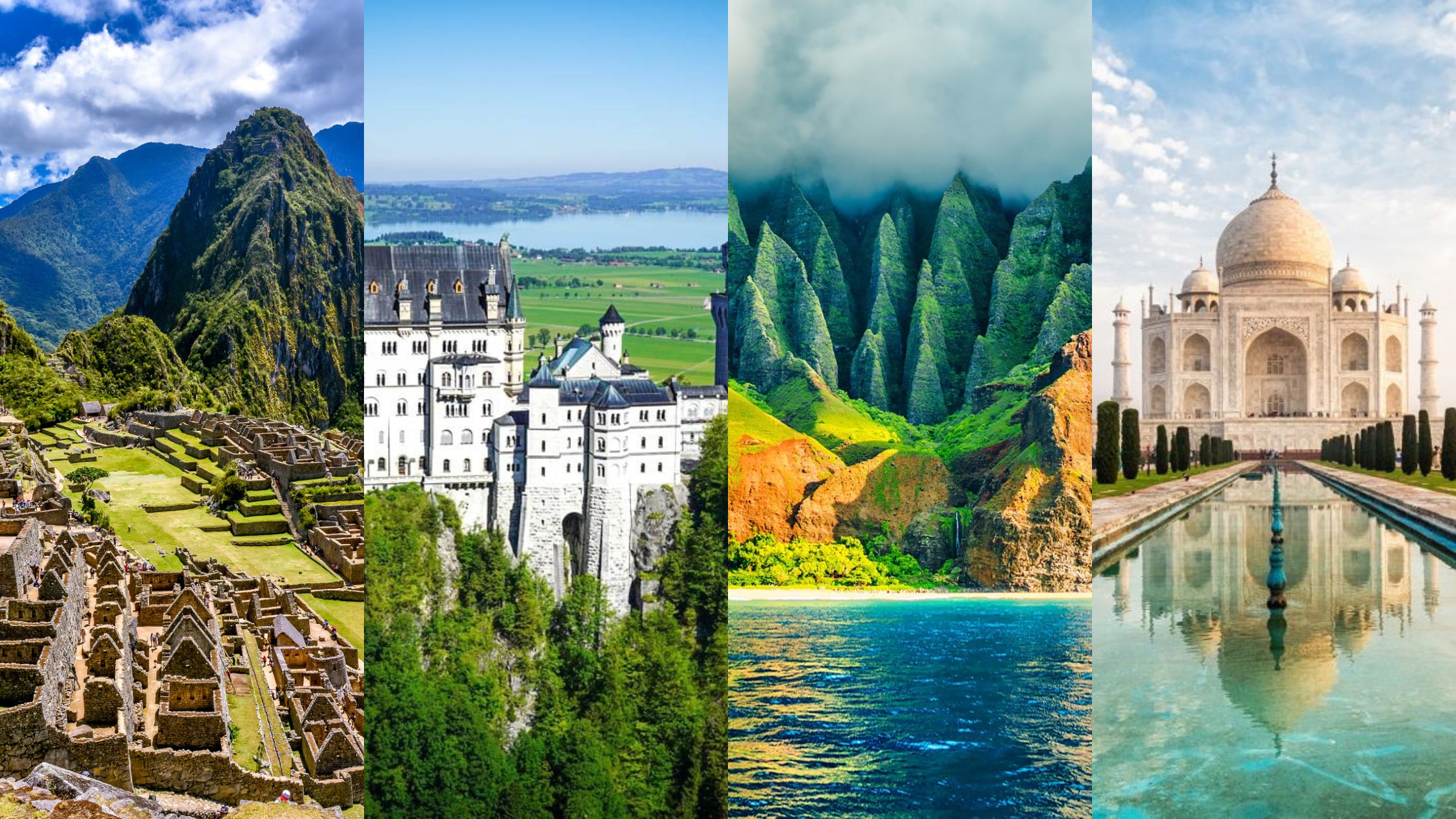
You might already know that many Disney films are based on fairytales. Snow White and the Seven Dwarfs comes from the Brothers Grimm classic and Sleeping Beauty by Charles Perrault was the basis for the film of the same name. But a princess is nothing without her castle, so have you ever wondered about the inspiration behind architectural designs in Disney films?
Meredith Cohen, a medieval architecture historian, breaks down the palaces in some Disney princess movies, including classics like Snow White and Sleeping Beauty as well as newer films like Brave, Tangled, and Frozen. Many of these palaces are inspired by real-life castles, cathedrals, buildings, etc…
Below, take a look through these picturesque structures which also serve as the real-life inspiration behind Disney palaces:
1. Castle in Sleeping Beauty, inspired by Neuschwanstein Castle, Germany.
The castle of Sleeping Beauty in the movie and the one at Disneyland in California’s Anaheim are inspired by the 19th century Neuschwanstein Castle in Fussen, Germany, located on a hill in southwest Bavaria. Built by King Ludwig II as a retreat and also to pay homage to Richard Wagner, the famous composer, it has survived two World Wars. Walt Disney was inspired by the grand romantic architecture during a trip with his wife, Lilian. It is been featured in many non-Disney films.
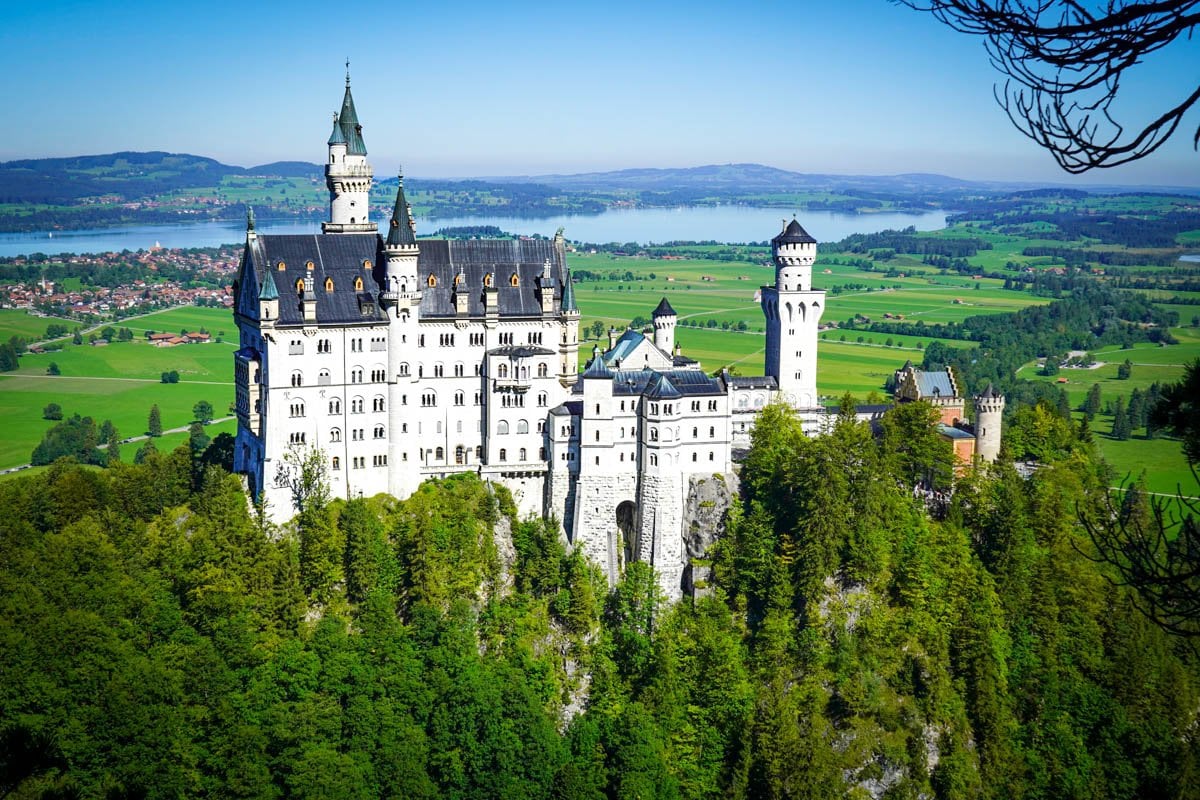
2. The city in Princess and the Frog, inspired by New Orleans, Los Angeles.
The picturesque and unique city, featured in The Princess and the Frog, is based on New Orleans in the 1920s. Princess Tiana is shown to work as a waitress in New Orleans. The beautiful architecture of the city, as well as its streets, has been featured throughout the film, especially the French Quarter. However, a lot of controversies stirred up after the movie was released since Tiana was shown as a Person of Colour and the settings had connotations of slavery and voodoo.
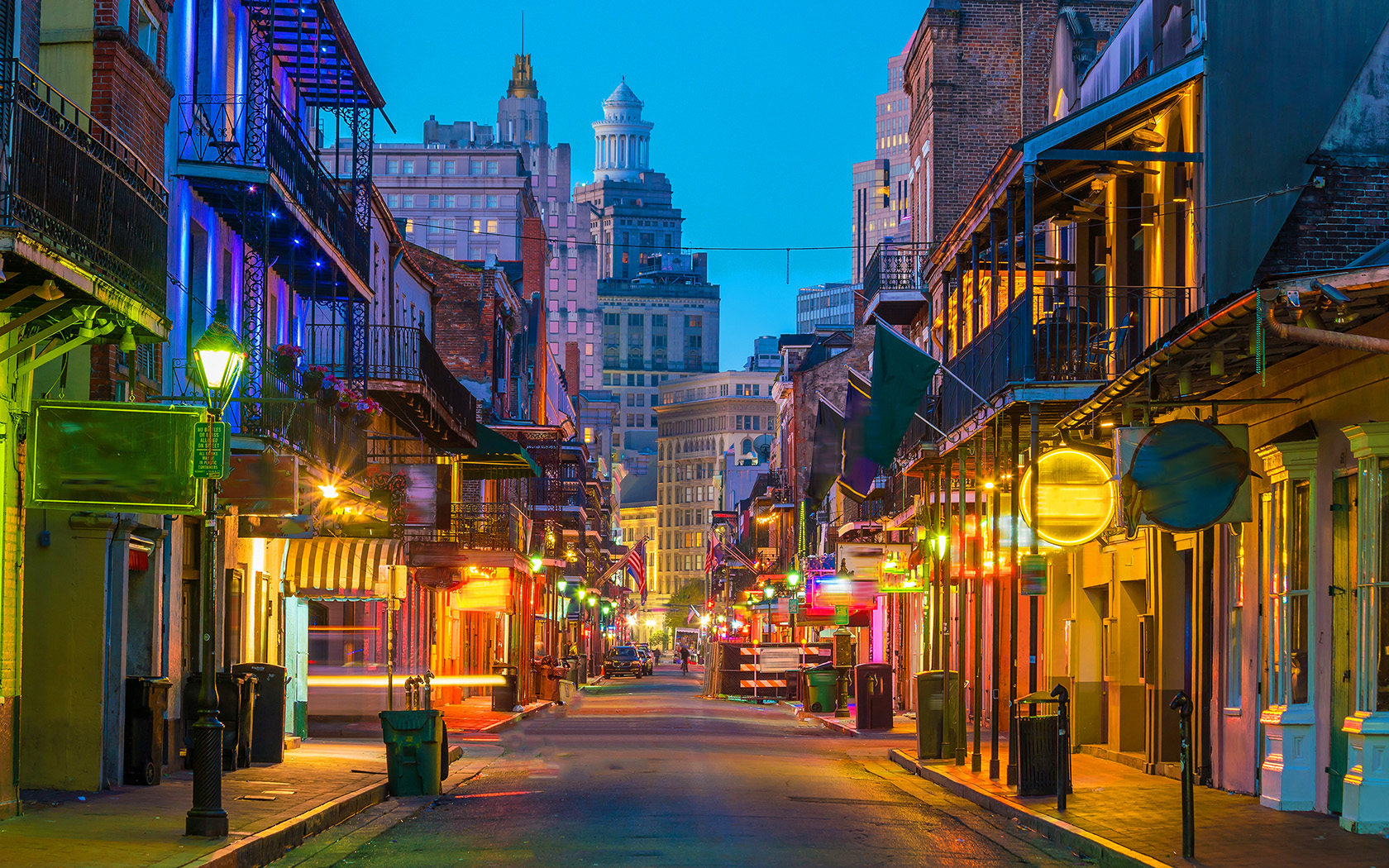
3. Royal palace in Tangled/Prince Eric’s castle in The Little Mermaid, inspired by Mont Saint-Michel, France.
The royal house of the princes in Tangled, the retold version of Rapunzel, was inspired by the small commune within the fortified walls of Mont Saint-Michel in Normandy. The 8th-century island, with abbey, monastery, halls and towers, built in a Romanesque style, near the north-western coast of the country, also inspired Prince Eric’s castle in The Little Mermaid. The fairy-tale-like quality of the island was emulated by Disney’s art designers to create both the castes and the surroundings.
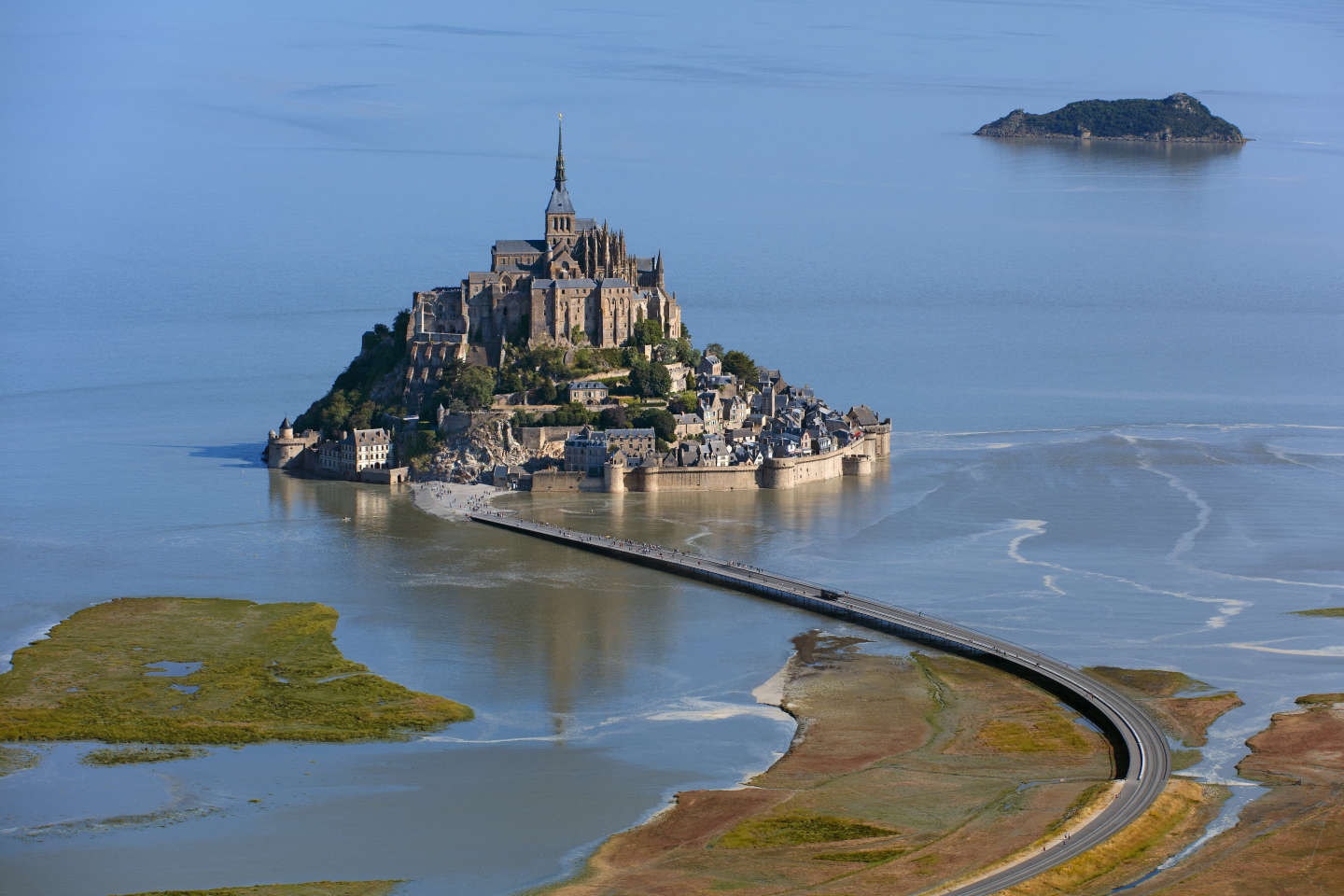
France, Manche (50) Baie du Mont-Saint-Michel (vue aérienne)
4. Locality of Lilo in Lilo and Stitch, inspired by Kauai, Hawaii.
The settings of Lilo and Stitch are based on the Hawaiian island named Kauai. One of the few Disney films to take place in the contemporary days, the current small towns of Kauai have been incorporated into the movie, particularly Hanapepe. On one hand, the animation captures the beauty of the actual place, and on the other, it shows the solemn details of the town, indicating the economic turmoil of the region when the film was made in 2000.
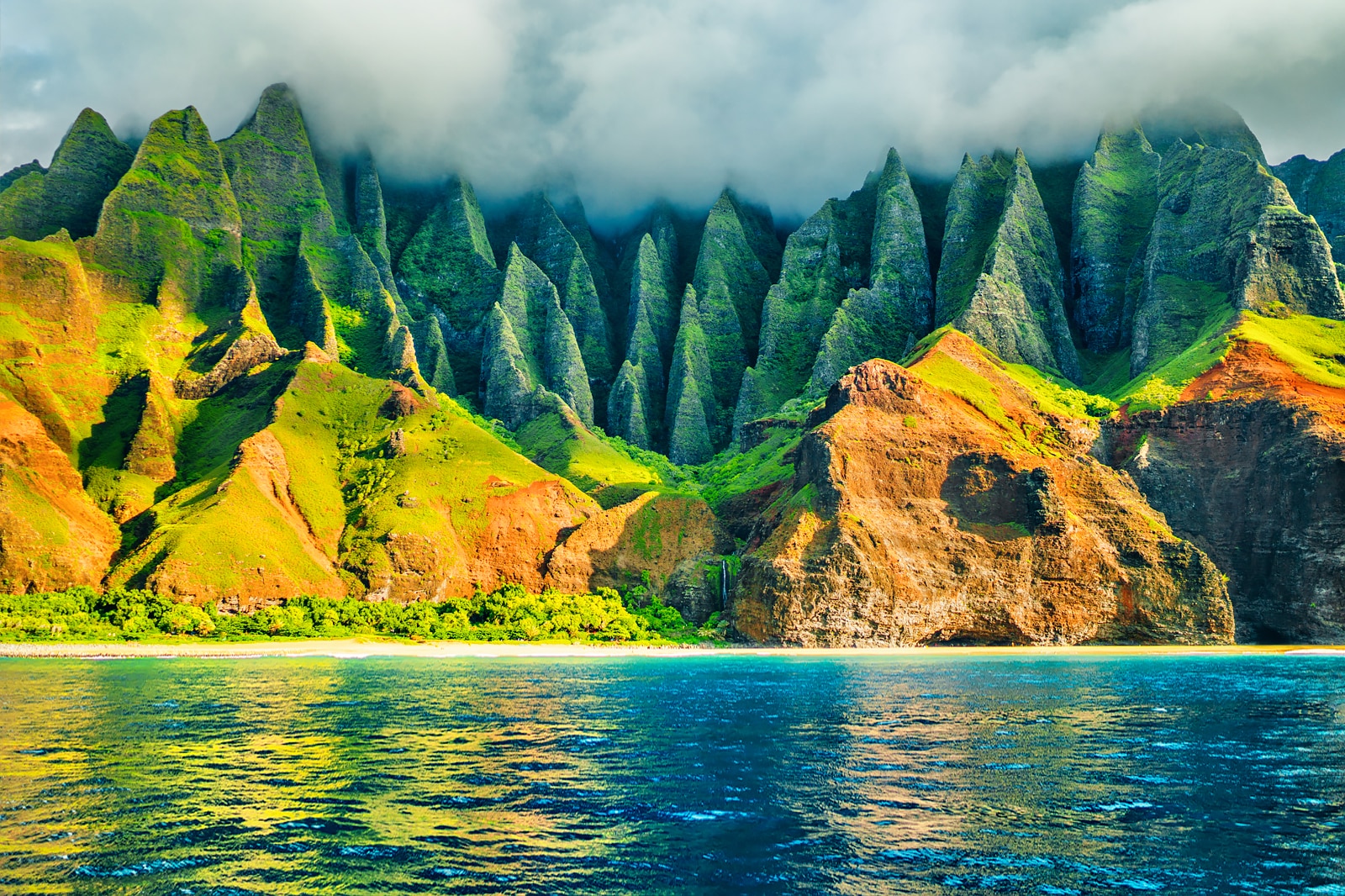
5. Beast’s Palace in Beauty and the Beast, inspired by Château de Chambord, Loire Valley of France.
The main setting of the movie, the Castle of the Beast, was inspired by Château de Chambord in the Loire Valley of France. Started by King Francis I, it was never completed, and the 14th-century castle with distinctive French Renaissance architecture is the perfect inspiration for the Beast’s castle, with its dark rooms and overwhelming size. On the other hand, Belle’s poor, provincial town was based on the charming villages in the region of Alsace in France, located near the German borders.
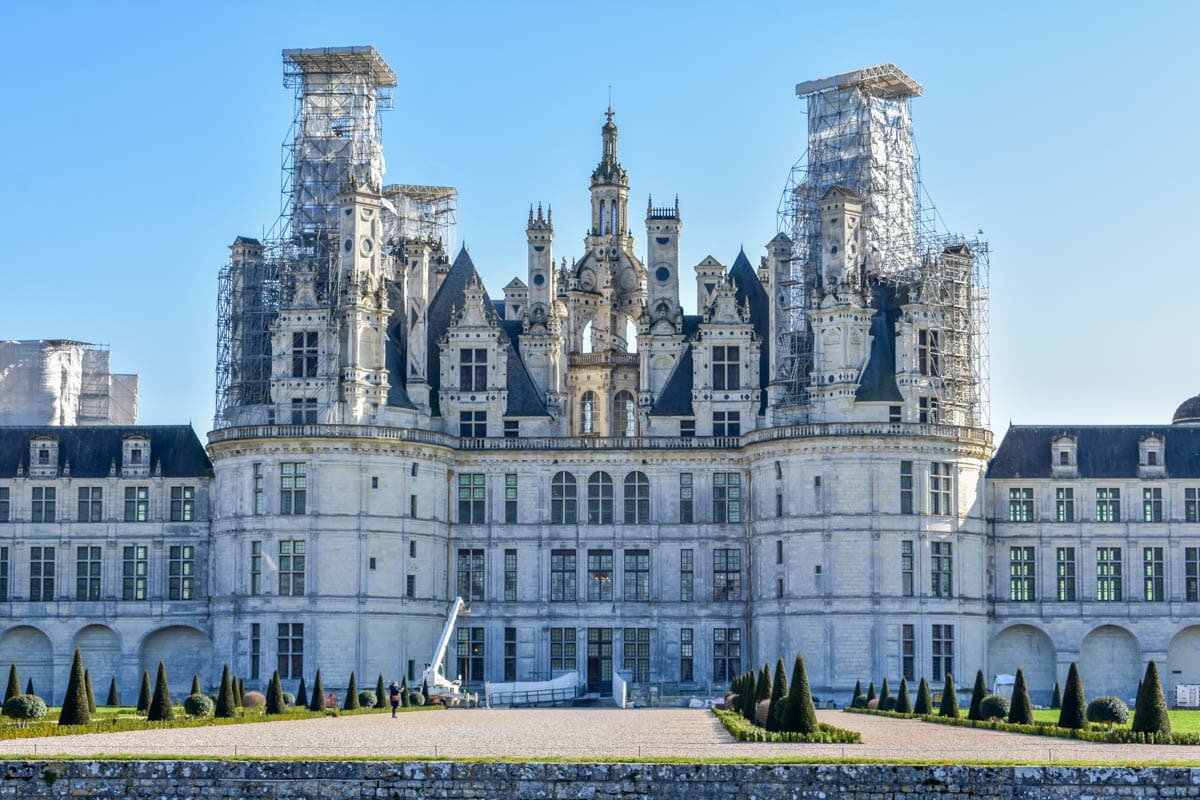
6. Ramone’s Body Shop in Cars, inspired by U-Drop Inn in Shamrock, Texas.
The U-Drop Inn is a gas station and restaurant with unique art deco architecture, built in 1936 by J.C. Berry. This structure is the inspiration behind Ramone’s Body Shop in the movie Cars, and the film’s version is an almost exact replica of the original building. In fact, much of the town of Cars is based on the Route 66 of Shamrock, which inspired animator, John Lasseter, while he was on a road trip with his wife and children.
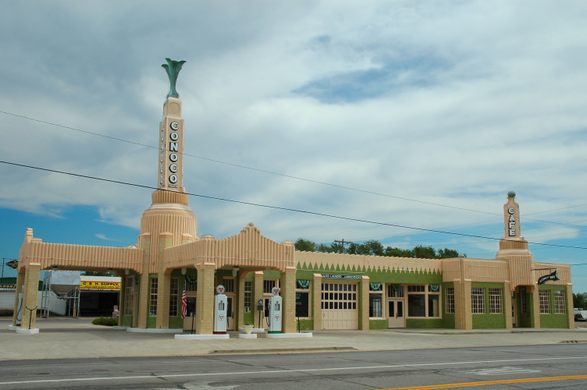
7. Elsa’s ice palace in Frozen, inspired by Hotel de Glace, Canada.
Also called the Ice Hotel, Hotel de Glace, opened in 2001, was the visual inspiration for designing the ice palace of Elsa in Frozen. Made out of ice and opened from January through March every year, the hotel led to the interior design of the palace. Besides, Elsa’s land, Arendelle, was based in Trøndelag, Norway. The sleepy mountains, quaint villages, fjords, Nidaros Cathedral and the Royal residence at Stiftsgården, and even the clothing and the ways of life there have made it into Arendelle.
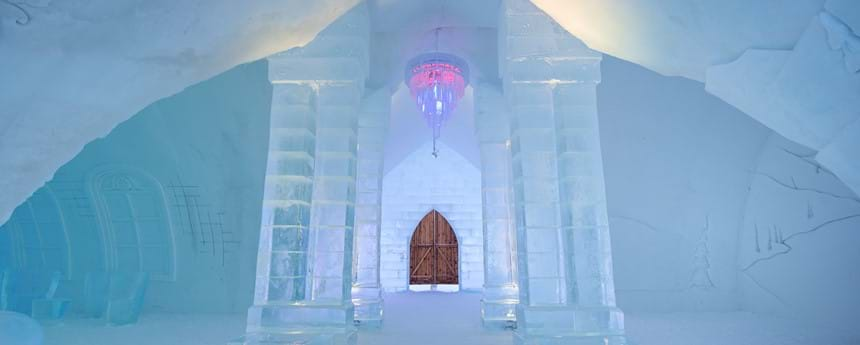
8. Cottage of the Seven Dwarfs in Snow White and the Seven Dwarfs, inspired by Storybook cottages, LA.
Who said simplicity could not be an inspiration? The simple but postcard-perfect cottages in the Los Feliz neighbourhood of Los Angeles served as the inspiration for the cottage of the Seven Dwarfs. However, the popular but wrong belief is that it is the other way around. Architect Ben Sherwood designed and built these cottages in 1931 while the movie was released in 1937. While working on the movie, at least one of the animators used to live in a cottage here.
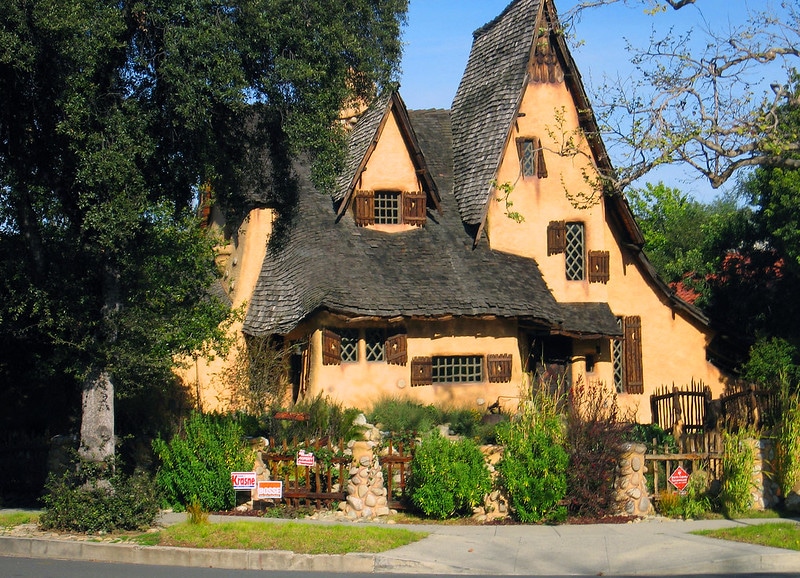
9. Queen’s castle from Snow White and the Seven Dwarfs/Cinderella Castle, inspired by Segovia Castle, Spain.
The Queen’s castle in the animated movie, Snow White and the Seven Dwarfs, is based on the Alcázar of Segovia, a stone fortification in the old city in Spain, which also serves as the inspiration behind the Cinderella Castle, in Florida’s Walt Disney World Resort, as well as Tokyo Disney Resort. The original castle palace, with its first reference dating back to the 12th century, is like the bow of a ship, rising out on a ridge at the confluence of two rivers against a mountainous background.

10. Simba’s land in The Lion King, inspired by the Serengeti, Tanzania and Kenya.
The land where the Lion King and his friends and family lived is based on the vast plains of Serengeti in northern Tanzania extending up to south-western Kenya where it is called Masai Mara, known for its large population of lions, alongside different species of plants and animals, inspiring the wildlife and wilderness in the Disney movies. But, despite the rumours, the Pride Rock is not based on Hell’s Gate National Park, but, on a variety of inspirations around the landscape.
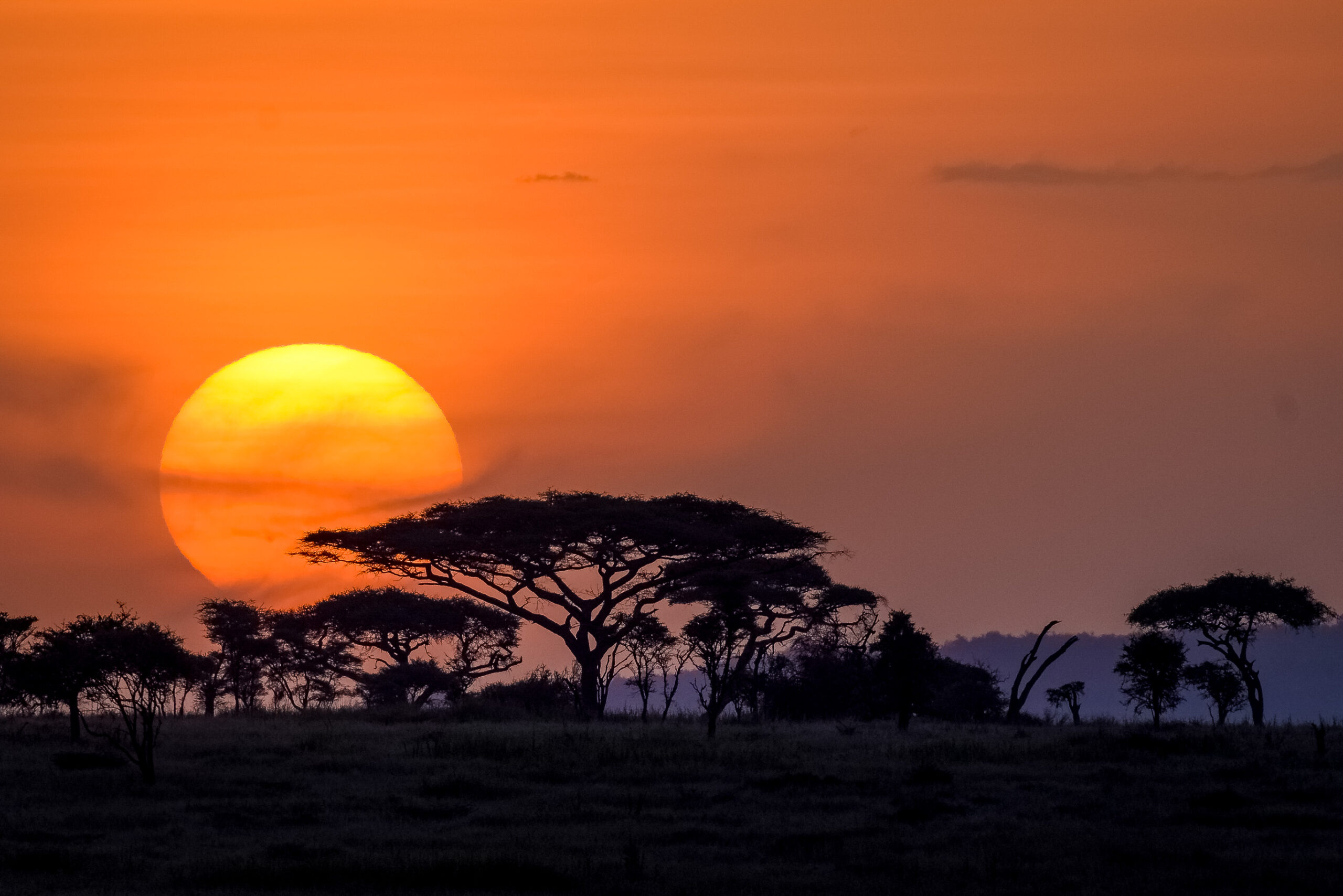
11. DunBroch Castle in Brave, inspired by Dunnottar Castle, Scotland.
Pixar’s animators drew inspiration from Dunnottar Castle in Stonehaven Scotland to create the royal palace in the movie, Brave. The surviving 15th and 16th-century buildings of the medieval fortress are a dramatic foundation on which the Disney castle was based. In fact, the many experiences, sights and adventures of Merida in the movie on her horseback are largely inspired by the rugged variety offered by the entire Scotland.
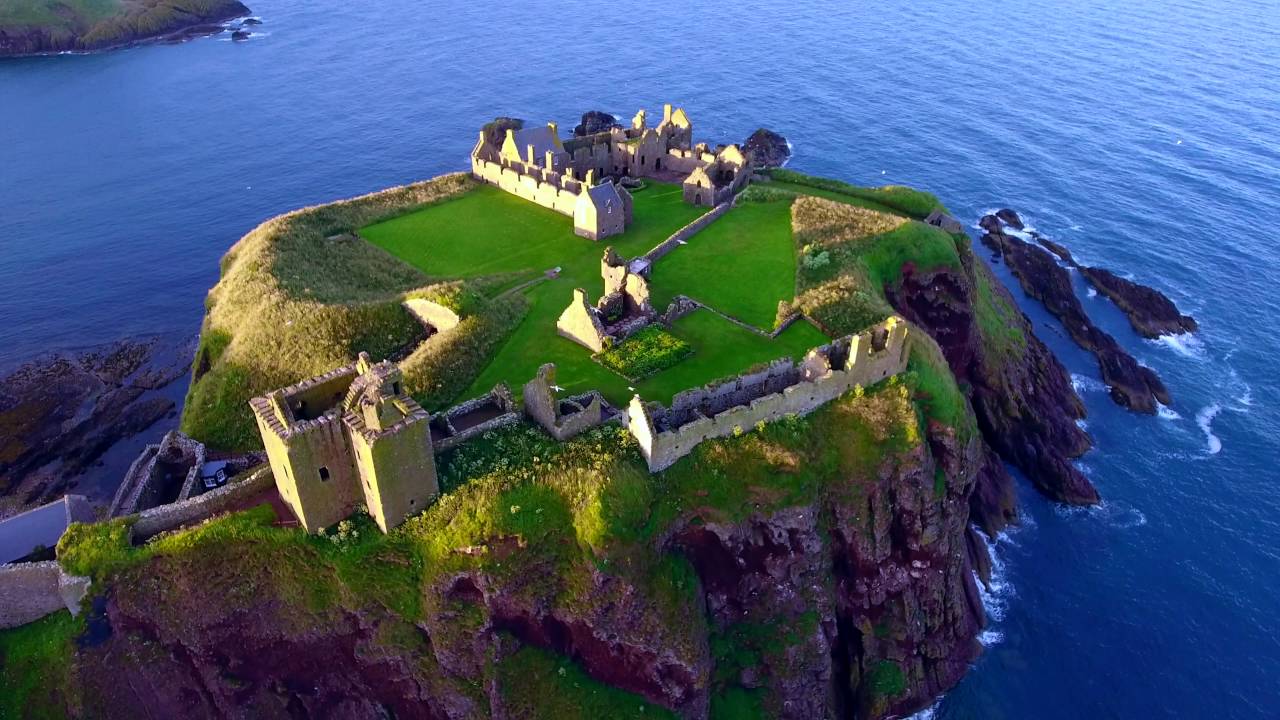
12. Pacha’s village in The Emperor’s New Groove, inspired by Machu Picchu, Peru.
The Disney animators, while creating Kuzco’s empire in The Emperor’s New Groove, were inspired by Machu Picchu in Cusco, and based Pacha’s hilltop village on the ruins of what the Incans had built around the 15th century. Located on a mountain ridge, the site and the two distinct peaks, which are the most familiar icon of the Inca civilization, have clearly inspired the imaginary village. Even the Disney names are inspired by real-life names as Picchu became Pacha, and Cusco, Kusco.
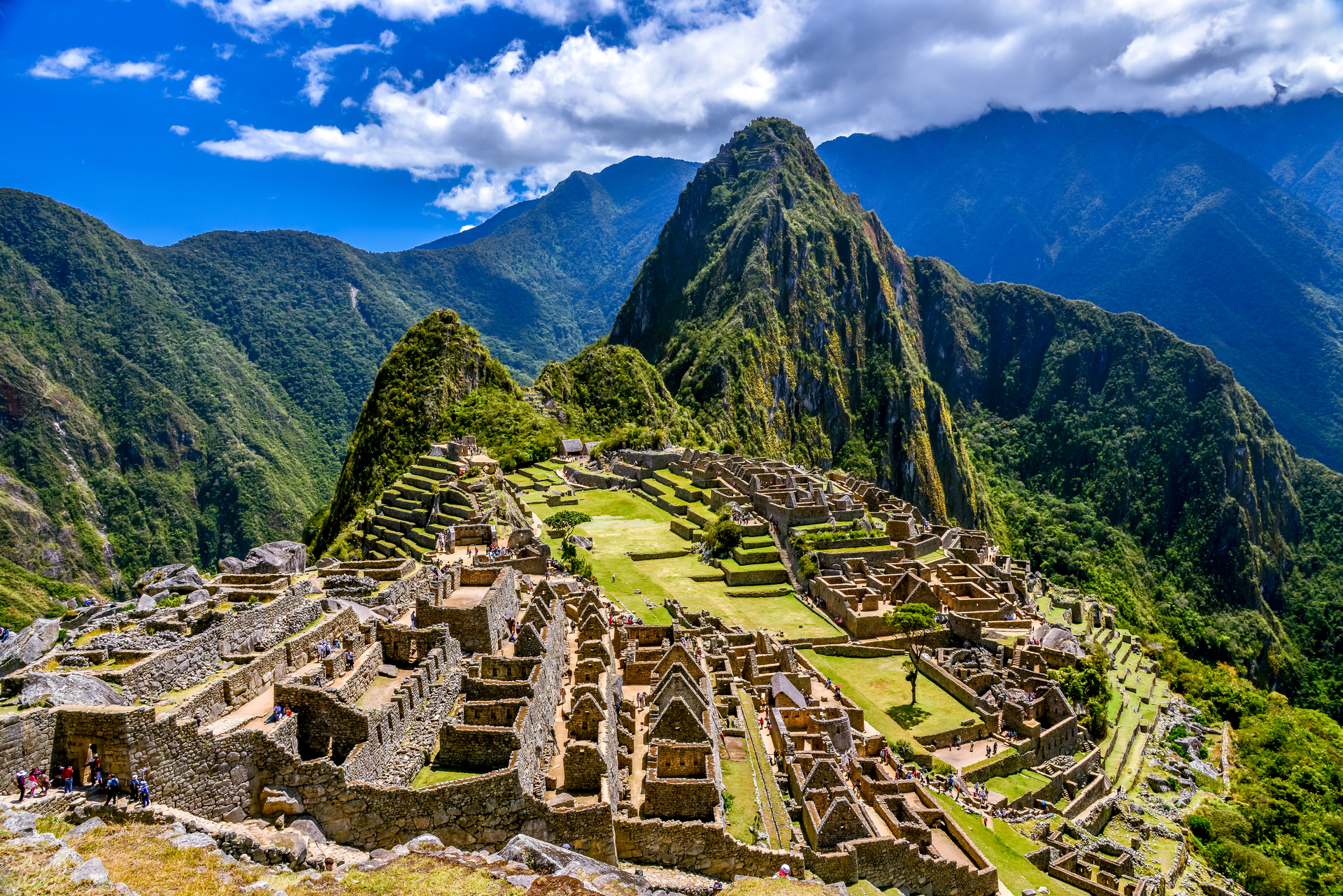
The city of Machu Picchu with Huayna Picchu mountain in the background. Photo / Getty Images
13. Paradise Falls in Up, inspired by Angel Falls in Canaima National Park, Venezuela.
The fictional Paradise Falls in South America, where Carl visits Up, is actually based on an enthralling location called the Angel Falls which is in the Canaima National Park in Venezuela. The region has high, rocky mountains with narrow waterfalls cascading down the ancient sandstone tepui. The natives consider this area sacred. Angel Falls, the highest uninterrupted waterfall in the world, is too beautiful to be real, and in reality, looks like a work of art.

14. Atlantis from Atlantis: The Lost Empire, inspired loosely by Angkor Wat in Siem Riep, Cambodia.
While creating Atlantis, the Disney directors wanted to look into ancient, unusual architecture, and they decided to go for Southeast Asian architecture. They deconstructed Mayan, Indian and Cambodian architectures and created Atlantis, to capture the theme of an advanced civilization inspiring the culture, language and architecture of the world. The temple complex is loosely based on 12th-century Angkor Wat in Angkor, Cambodia, the largest religious monument in the world.
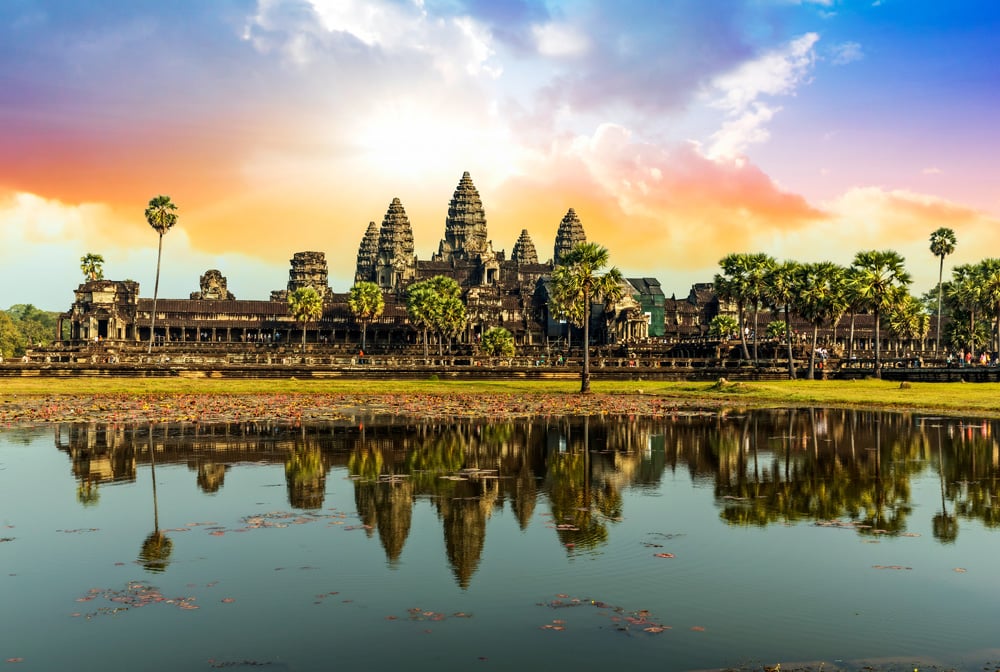
15. Sultan’s palace from Aladdin, inspired by the Taj Mahal, India.
The fictional palace which was the home of the Sultan of Agrabah, Princess Jasmine and Aladdin, was very recognizably inspired by India’s Taj Mahal, one of the Seven Wonders of the World. A grieving Emperor Shah Jahan had it built in memory of his wife, Mumtaz Mahal, as her mausoleum and his asylum. Located in Agra, this 17th-century architectural marvel inspired the creation of Disney’s castle with white walls and golden domes, surrounded by beautiful gardens.
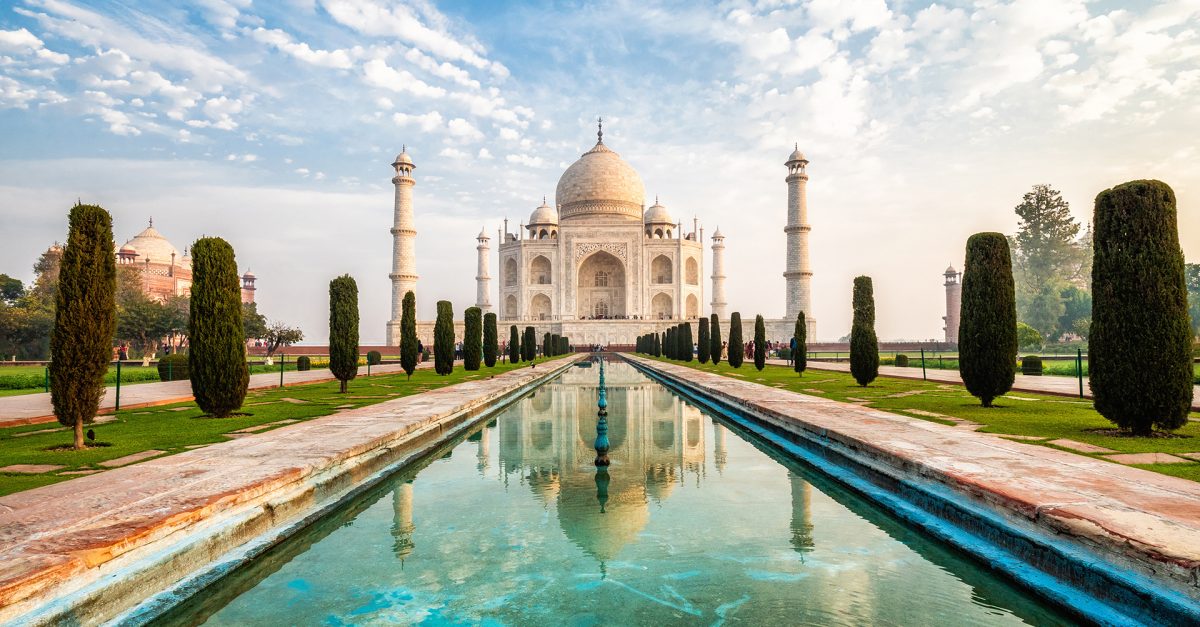
Conclusion
Thus, we see that the real world is indeed a beautiful place, and what we believe to be just in books can be found in different places around the world.
One does not need to be a part of Storybrooke or the fictional animated worlds to be able to witness these wonderful places that inspired Disney movies.
More Articles on RNN
- Beautiful Abandoned Places Around The World
- Top 10 Tall And Beautiful University Clock Tower
- Top 10 Most beautiful Canal cities in the world 2023
- Facts About Disney Theme Park Princesses and Characters
